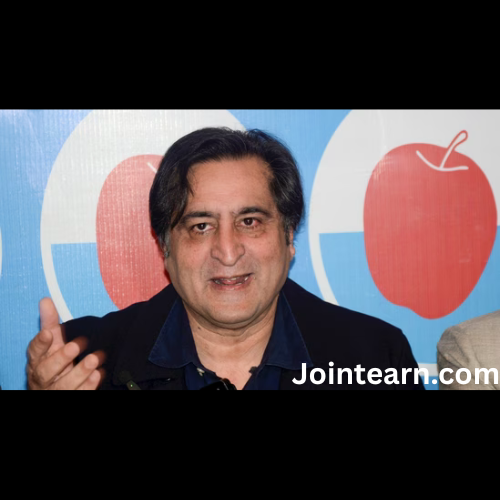
A political storm erupted in Jammu and Kashmir on Saturday after the Rajya Sabha elections for four seats, with People’s Conference (PC) chief Sajad Lone accusing the ruling National Conference (NC) of “gifting” seven votes to the Bharatiya Janata Party (BJP), calling the exercise a “fixed match.”
The allegations came after the Rajya Sabha polls, held for the first time in J&K since its reorganization into a Union Territory (UT) in 2019, resulted in NC winning three of the four seats, while the BJP secured one.
Lone’s Allegations
Addressing the media in Srinagar, Sajad Lone said, “You (NC) have clearly gifted seven members to the BJP. It was a fixed match.”
He accused the NC of betraying its anti-BJP stance, adding:
“They used to say everyone else is with the BJP and only they are against it. Today, we have caught them red-handed in their (BJP’s) lap.”
Lone further alleged cross-voting by NC MLAs and claimed the results were not due to “horse-trading” but an “understanding” between NC and BJP.” He claimed:
“The NC had a pact with Delhi. The BJP’s real tally is 70, including 42 from the NC, and not just 32 (28 party MLAs plus four who supported it in the polls).”
Vote Pattern and Controversy
The elections for the four Rajya Sabha seats were conducted in three separate notifications:
- First two seats: NC candidates Chowdhry Mohammed Ramzan and Sajjad Kitchloo won comfortably.
- Third notification (two seats contested): NC’s GS Oberoi (Shammi Oberoi) and Imran Nabi Dar faced BJP’s Sat Sharma.
Results for this third round raised eyebrows:
- Oberoi received 31 votes
- Dar received 21 votes
- Sharma secured 32 votes
- Three votes were declared invalid
The BJP, with 28 MLAs, appeared to have gained at least four extra votes, presumably from Independents. However, Lone alleged that the cross-voting came from NC MLAs themselves.
He questioned the invalid votes, asserting, “Who are those whose votes were rejected? They are not kindergarten kids; everyone understands the process.”
NC Denies Allegations
Earlier, on Friday, J&K Chief Minister Omar Abdullah dismissed speculations of cross-voting within his party. He stated:
“All of @JKNC_votes remained intact across the four elections, as witnessed by our election agent who saw each polling slip. There was no cross voting from any of our MLAs, so the questions arise — where did the four extra votes of the BJP come from?”
He added:
“Who were the MLAs who deliberately invalidated their votes by marking a wrong preference number while voting? Do they have the guts to put their hands up and own up to helping the BJP after promising us their votes? What pressure or inducement helped them make this choice? Let’s see if any of the BJP’s secret team own up to selling their souls!”
Political Implications
The controversy highlights the complex political dynamics in the UT following its reorganization and the first-ever Rajya Sabha polls since 2019. Analysts note that the NC-BJP relationship, Lone’s allegations of a “pact with Delhi,” and the mystery of extra votes could intensify political rivalries and deepen public skepticism about the electoral process.
The incident also underscores growing tensions between smaller regional parties like the People’s Conference and dominant players such as the NC and BJP, with allegations of vote manipulation and behind-the-scenes arrangementspotentially shaping the political narrative in J&K.
In summary, the J&K Rajya Sabha elections have triggered a political firestorm, with Sajad Lone alleging a “fixed match” and cross-voting by NC MLAs, while NC leadership denies any wrongdoing. The controversy now raises questions about the integrity of voting behavior among legislators and the strategic calculations of major political parties in the Union Territory.


Leave a Reply